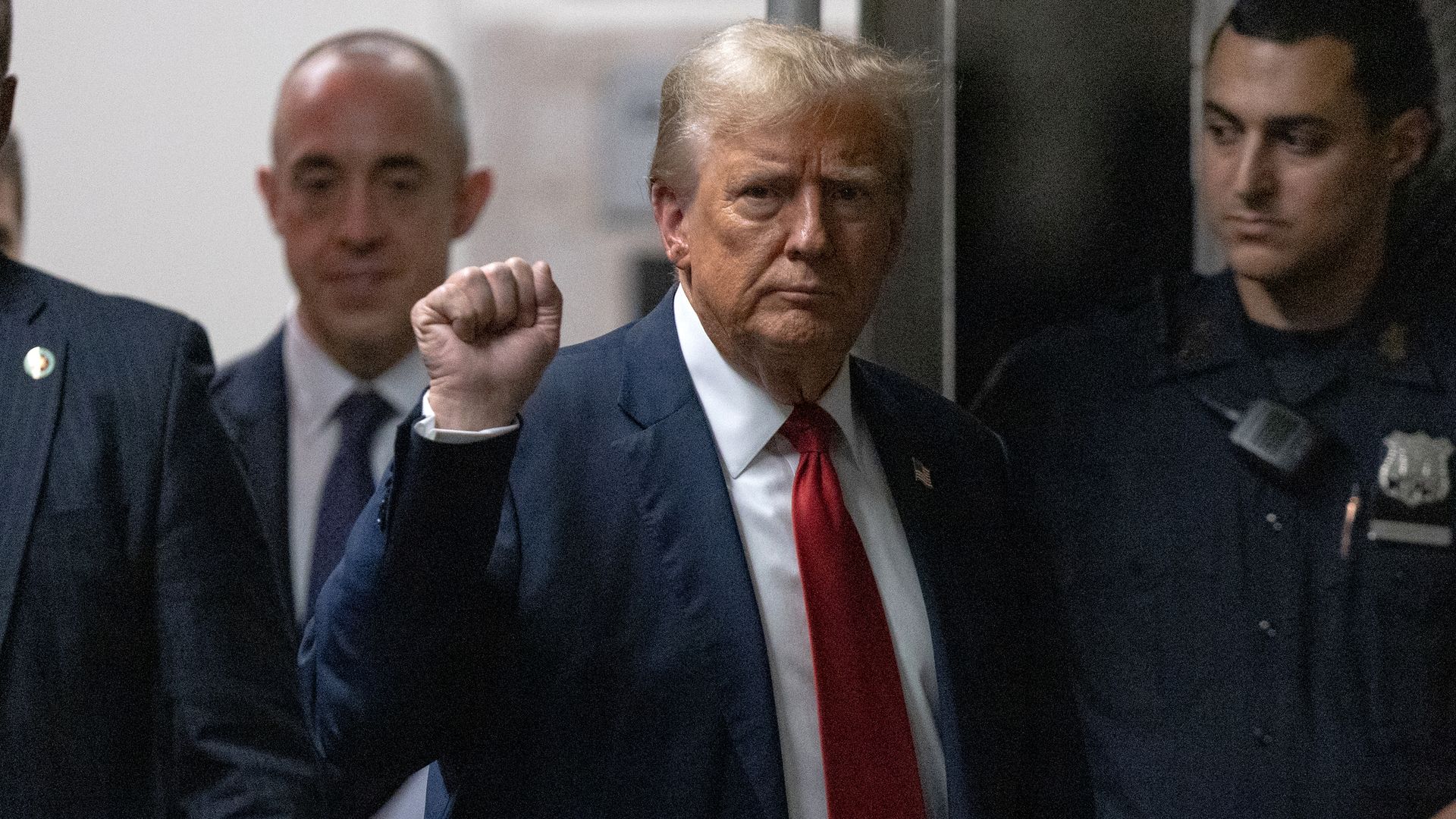
Do former Presidents have immunity from criminal prosecution? If so, to what extent? The Supreme Court will answer those questions in a case that will decide not only whether multiple criminal trials can move forward against Donald Trump, but also further define Article II of the United States Constitution.
“We’re writing a rule for the ages,” Justice Neil Gorsuch said during the two and a half hour oral argument.
“This case has huge implications for the presidency for the future the presidency for the future. of the country,” Justice Brett Kavanaugh added.
Donald Trump’s lawyers began by saying presidents have total immunity for their official acts.
“Without presidential immunity from criminal prosecution there can be no presidency as we know it,” Attorney D. John Sauer told the justices. “If a president can be charged, put on trial and imprisoned for his most controversial decisions as soon as he leaves office, that looming threat will distort the president’s decision making precisely when bold and fearless action is most needed.”
The justices put that argument to the test with a series of hypotheticals.
“Somebody says, ‘I’ll give you a million dollars if I made the ambassador to whatever.’ How do you analyze that?” Chief Justice John Roberts, asked Sauer.
“That I think would fall under this Court’s discussion in Brewster where the Court held, with respect to legislative acts, that bribery is not an official act,” Sauer responded.
“How about if a president orders the military to stage a coup?” Justice Elena Kagan asked.
“I think that, as the Chief Justice pointed out earlier, where there is a whole series of, you know, sort of guidelines against that, so to speak, like the UCMJ prohibits the military from following a plan for the unlawful act,” Sauer said.
Justice Amy Coney Barrett did not use hypotheticals. She laid out specific accusations against Trump and asked his attorneys to state plainly whether they are private or official acts.
“Petitioner turned to a private attorney who was willing to spread knowingly false claims of election fraud to spearhead his challenges to the election results, private?” Barrett said.
“As alleged, I mean we dispute the allegation, but that sounds private,” Sauer answered.
“Petitioner conspired with another private attorney who caused the filing in court of a verification signed by Petitioner that contained false allegations to support a challenge,” Barrett said.
“That also sounds private,” said Sauer.
Barrett later asked government lawyers, if they are concerned about this case moving quickly due to the upcoming election, why not drop the charges that involve acts that may be official, and move forward with the acts that are admittedly private.?
“It is another option for the special counsel to just proceed based on the private conduct and drop the official conduct?” Barrett inquired.
“There’s really an integrated conspiracy here that had different components,” Attorney Michael Dreeben, who argued for the Special Counsel stated. “The petitioner reaching for his official powers to try to make the conspiracies more likely to succeed. We would like to present that as an integrated picture to the jury so that it sees the sequence and the gravity of the conduct.”
Other Justices questioned whether the former President’s actions were done for official purposes or personal gain.
“Isn’t that the nature of the allegations here – that he’s not doing them, doing these acts in furtherance of an official responsibility, he’s doing it for personal gain,” Justice Sonia Sotomayor said.
“I agree with that characterization of the indictment and that confirms immunity,” Sauer said. “Because the characterization is that there’s a series of official acts that were done for…”
“No, because immunity says even if you did it for personal gain, we won’t hold you responsible,” Sotomayor countered.
Despite the tough questions for Trump’s lawyers, the Justices indicated there are larger questions to be answered about Article II of the Constitution and presidential powers.
Chief John Roberts expressed concern with the lower court’s ruling in this case that said Trump can be prosecuted.
“Why it concerns me is, I read it says simply, a former president can be prosecuted because he’s being prosecuted,” Chief Justice John Roberts said. “Now you know how easy it is in many cases for a prosecutor to get a grand jury to bring an indictment and reliance on the good faith of the prosecutor may not be enough in some cases. I’m not suggesting here.”
Justice Kentanji Brown Jackson later added, “I do take as a very legitimate concern about prosecutorial abuse, about future presidents being targeted for things that they have done in office. I take that concern. I think it’s a real thing. But I wonder whether some of it might also be mitigated by the fact that existing administrations have a self interest in protecting the presidency, that they understand that if they go after the former guy, soon, they’re going to be the former guy.”
A decision should be released by June, but that may not be the end of it. The Justices could create new parameters for judges to consider then send the case back to the lower courts to sort out.







